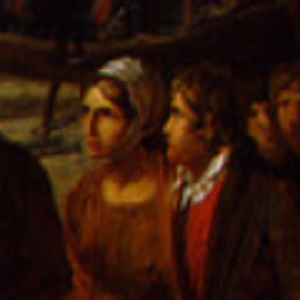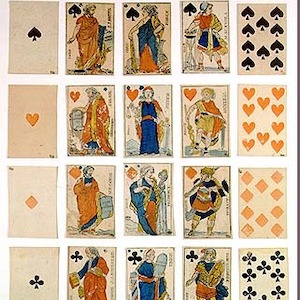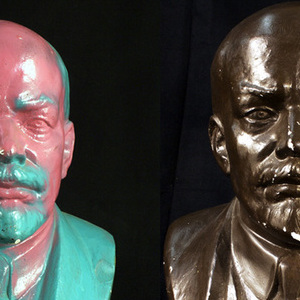Culture

Enslaved and Free Blacks in Saint Domingue
This engraving pairs images of enslaved people and free blacks in four categories: dress, deportment, entertainment, and access to water. Although there are differences between the pairs, these are not as great as they might be.

The King Returns to Paris
From Berthault’s series of great moments in the Revolution, this engraving presents a version of events on 6 October 1789 favorable to the King.

Watch Yourself or You'll be a Product for Sale
The women in this image appear to be tempted to a life of prostitution. The female figure in the left foreground gestures toward the door but remains modestly attired. Once inside, the women are there for the pleasure of men and wear revealing or little clothing.

The Fatherland in Danger
This painting of the period by Gillaume Guillon Lethière shows the emotion caused by the prospect of loved ones departing for the army. Women had to part with their families in order to support the nation in its time of need. Notice the female statue overlooking the scene.

Game of the Great Men, Minot the Elder
Revolutionaries redesigned playing cards in order to eliminate references to royalty (kings, queens, jacks) and replace them with great men and abstract virtues.

The Butcher Shop, Warsaw
In the 1980s average citizens of East European countries faced many challenges, including daily difficulties created from ongoing and severe shortages of consumer goods. Buying such necessities as food, clothing, and hygiene products was a recurring obstacle to average consumers.

Shopping queue in Wrocław
Upheavals in political, economic, social, and cultural conditions in the 1980s led to many challenges in everyday lives of average citizens of East European countries. Buying such necessities as food, clothing, and hygiene products posed serious difficulties to consumers.

Two Lenins (forward)
These busts of Lenin (Vladimir Ilyich Ulyanov), the first leader of the Soviet Union, are but two samples of thousands of different versions of Lenin's likeness. Both are copies of the same plaster bust, approximately two feet in height.

Two Lenins (profile)
These busts of Lenin (Vladimir Ilyich Ulyanov), the first leader of the Soviet Union, are but two samples of thousands of different versions of Lenin's likeness. Both are copies of the same plaster bust, approximately two feet in height.

The Fountain of Regeneration
In this engraving of the Festival of Reunion or Unity of 10 August 1793, a female statue of Nature in the form of the Egyptian goddess Isis represents the regeneration of the French people. It sits on the site of the Bastille prison, whose fall signaled the beginning of the Revolution.